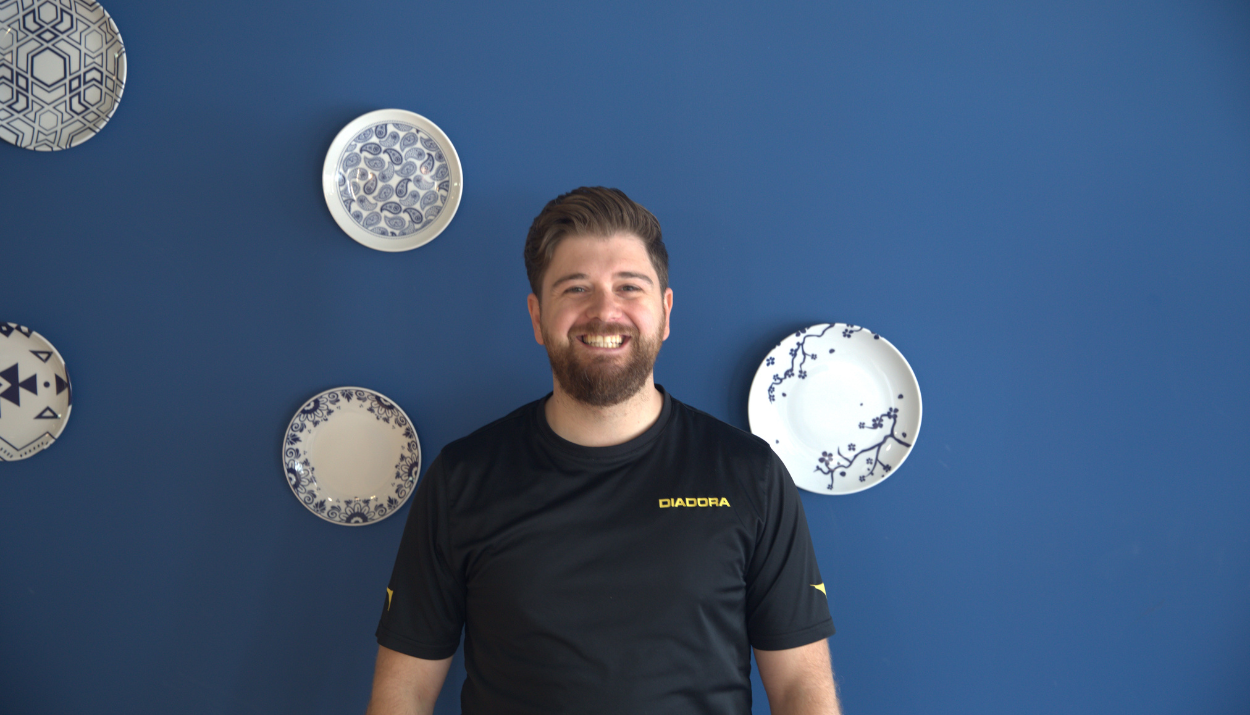Music transcends language barriers
21 september 2022
Music transcends language barriers, as Muhammed Al Attar (30) proves. He likes to play Dutch songs with his lute, such as “Da bij de waterkant” (There on the waterfront) by De Havenzangers. This gave him a grip on the Dutch language and that stimulated him to continue to develop himself.
How did you get here?
''In 2020 I fled Syria because of the war. First via Lebanon to Iraq. Then to Iran, on foot over the mountains to Turkey and then by boat to Greece. I eventually ended up in the Netherlands via Belgium. It was a long, dangerous journey with many people smugglers on the way. In the Netherlands I was in various asylum seekers' centres before I finally came to Eindhoven. I have been living here since June 2021.”
How did you come into contact with STE Languages?
“My brother and his wife also live here. They already spoke the language, so I asked them: how did you learn to speak Dutch so well? That was because of STE and then I knew enough: I had to go there as well!”
Why is it important for you to learn Dutch, and what do you want to achieve?
“The Netherlands is my new country. I want to build a life here and so I have to learn to speak Dutch well. Not only for everyday life, but also to be able to complete higher professional education in ICT. Speaking Dutch should eventually become routine.”
You have followed a group training course. Can you tell us about your learning experiences?
“My group includes people from Yemen, Turkey and Syria. Through the course, you get to know about other cultures and I really like that. In addition, it also helps to learn in a group. Dutch is a beautiful language, but difficult. Together you make progress because you learn from each other.”
What is your favorite Dutch word or expression?
"For me, that's the word 'sowieso’ (anyway). That combination of sounds is very funny. During the course, my teacher sometimes said: ‘Doe dat lekker thuis’ (Do that at home’). We would never say that in Syria!”
When did you first notice that you started to understand Dutch?
“I am a musician and play the lute. When I came here I started playing Dutch songs. At a certain point, I managed to read and understand the Dutch texts, which was a great moment. Now, I play ‘Da bij de waterkant’ and I understand what it's about.”
What is daily life in Eindhoven like?
“Eindhoven is a beautiful city, I like to be in the city centre. In Syria you are not allowed to play music in the street, here you are. That's nice! I also find the weekly market very special. All those stalls in the middle of the street; that was forbidden in Syria, but it is very normal here.”
Do you have any tips for new students?
“Make sure you follow the STE study plan. You have to do your homework, even if it is hard work. As the Dutch say: ‘van uitstel komt afstel’. I also learned to speak Dutch everywhere. If I don't get it then I just say sorry, can you repeat that? So my advice is: only speak Dutch, no English.”
What is your overall impression of STE?
“Very good. They make a plan for every student. They ask questions and take a genuine interest in us. When a course is completed, they send an email asking for feedback. When I didn't respond the first time, I got another email. They really wanted to know what I thought, and they took into account what I needed.”
What will your life look like in ten years’ time?
“I am still working as a delivery person, but I won't continue to do that. In ten years' time, the Netherlands will really be my second homeland. Hopefully, I will have completed my studies and started working as an IT specialist. My dream is to become a well-known IT professional, like Elon Musk. That may not be realistic, but dreams are free and you have to set your goals high.”


